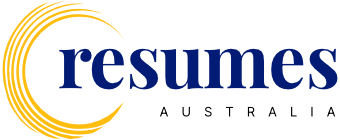
The AITSL Teacher Standards and their influence on teaching quality and student outcomes will be explored in this article. The three domains of teaching – Professional Knowledge, Professional Practice, Professional Engagement will be discussed.
Additionally, the article will cover how these domains are evaluated through evidence and assessment. Recognizing the significance of these standards is essential for educators seeking to improve their teaching methods and positively influence student learning.
What are the AITSL Teacher Standards?
The AITSL Teacher Standards are a set of guidelines and expectations that outline the knowledge, skills, and attributes required for effective teaching practices. These standards serve as a benchmark for educators to meet in order to provide quality education and support student learning.
They play a crucial role in the education sector by not only setting clear expectations for teachers but also fostering continuous professional development. By adhering to these standards, educators are encouraged to reflect on their practices, identify areas for improvement, and engage in ongoing learning opportunities to enhance their teaching skills.
This emphasis on professional growth ultimately benefits students as it ensures that teachers are equipped with the necessary competencies to deliver high-quality instruction, create engaging learning environments, and cater to diverse student needs effectively.
The Three Domains of Teaching
The three domains of teaching provide a comprehensive framework that addresses essential aspects of educators’ roles and responsibilities. These domains serve as the basis for effective teaching practices and play a part in achieving positive learning outcomes for students.
Professional Knowledge
The Professional Knowledge domain emphasises educators’ grasp of curriculum design, pedagogical strategies, and the implementation of evidence-based practices. It stresses the significance of being up-to-date with educational research and best practices to improve teaching effectiveness.
Educators can create engaging and relevant learning experiences for their students by continuously updating their knowledge in curriculum development.
Implementing innovative teaching methods like project-based learning or personalised instruction can accommodate diverse learning styles in the classroom.
Using evidence-based approaches enables educators to make informed decisions regarding instructional strategies, assessment techniques, and classroom management.
By seamlessly integrating these elements into their practice, educators can establish a dynamic and effective learning environment that fosters student growth and achievement.
Professional Practice
The Professional Practice domain highlights the importance of utilising effective teaching strategies, classroom management techniques, and assessment practices. It underscores the significance of employing differentiated instruction to address the diverse needs of students and promote inclusive education.
This domain plays a critical role in establishing an optimal learning environment that supports educators in fulfilling their roles. Effective classroom management is essential for cultivating a positive setting, facilitating smooth transitions, and minimising disruptions. By implementing efficient assessment strategies, teachers can monitor student progress, pinpoint strengths, and areas requiring improvement. Integration of differentiation techniques enables educators to accommodate varied learning styles and abilities, fostering a more engaging and meaningful educational experience for all students.
Professional Engagement
The Professional Engagement domain focuses on educators’ active involvement in professional learning, collaboration with colleagues, and maintaining high standards of professionalism. It emphasises the importance of effective communication and collaboration in creating a positive learning environment.
By participating actively in professional development opportunities, educators can enhance their teaching skills and contribute to enriching the overall educational landscape. Through meaningful interactions with peers, teachers can share innovative teaching practices, receive valuable feedback, and continually grow as professionals.
Upholding ethical standards and showing respect towards fellow educators are vital aspects of effective collaboration in educational settings. Educational leadership plays a crucial role in facilitating these engagements and guiding educators towards continuous growth and improvement.
How the Domains are Assessed
The assessment of the domains includes evaluating educators’ competencies in applying evidence-based practices, meeting performance indicators, and demonstrating quality teaching. This assessment process aids in identifying areas for professional growth and development.
Why the Domains are Important
Recognising the significance of domains is crucial due to their direct influence on teaching quality and student outcomes. By performing well in each domain, educators can establish a supportive learning environment that encourages student engagement and enhances academic achievement.
Impact on Teaching Quality and Student Outcomes
The domains play a significant role in influencing teaching quality and student outcomes, serving as the foundation for educators’ professional development and contributing to improved learning experiences. By aligning their practices with these domains, teachers can aim for continuous improvement and excellence in education.
In the field of educational leadership, these domains act as guiding principles for instructors to enhance their teaching methods and promote student participation. By prioritizing professional development opportunities related to these domains, educators can better prepare themselves with the necessary skills and knowledge to effectively address their students’ diverse needs. This not only enhances the quality of teaching but also results in notable advancements in student progress and achievements.
T

0 Comments